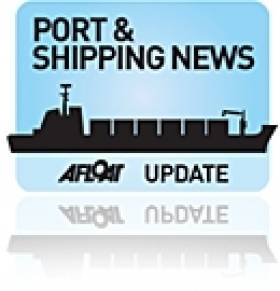Displaying items by tag: ASL
The act is designed to assist in securing the future of the Irish shipping sector in which five new companies in 2010 entered the scheme, generating an increase of 44% in the number of vessels (from 154 to 177) covered by the Tonnage Tax. Half of these vessels range less than five years old with the total average age at eight years.
In addition the initiative has directly created 314 jobs in 2009 to nearly 350 jobs last year. Most of the employment is in specialised areas such finance,technical management, operations and chartering.
Commenting on the data, IMDO Director Glenn Murphy said "The results are a positive indication that after long periods of decline for the industry that policy support measures have encouraged investment which has led to growth and new employment. We are optimistic that direct employment
in the high value professional shipping services sector could double over the next five years leading to further investment and job creation opportunities"
The majority of Irish-based ship-owning firms operating within the ITT scheme are not entirely reliant on the Irish economy for their daily core revenue streams but are instead employed in the international shipping markets.
In 2010 the global shipping business had total charter trading transactions estimated at $450 billion dollars. It was a year in which the shipping markets continued to be quite volatile with most sectors still recovering from large charter earnings declines over the previous 12 months. Overall Irish firms were quite resilient in their ability to compete last year.
The growth in this sector in Ireland has been driven by established Irish-owned companies Arklow Shipping Ltd (ASL) and the Mainport Group and inward investment has come from D'Amico and Ardmore Shipping. The chemical and products tanker fleet operator located its headquarters to Cork last year and the company is backed by a large US private equity firm.
To read more from the report, you can request a copy by contacting the IMDO by e-mailing [email protected]
























































